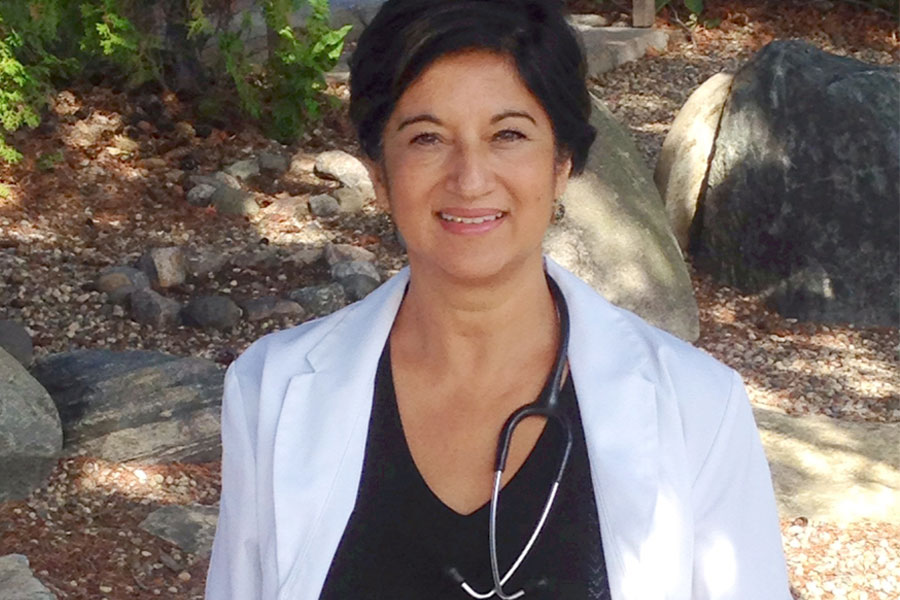Medication to meditation
Pain has been a constant for much of Anita Chakravarti’s life.
By University Communications Now she is using her own experiences managing chronic pain, and exploring new treatment options, to help and educate others.
Now she is using her own experiences managing chronic pain, and exploring new treatment options, to help and educate others.A College of Medicine alumna, she began her medical practice with the Saskatoon Health Region (SHR) in 1987 as an anesthesiologist helping surgical patients manage their acute pain. The tables turned in 1998 when she was thrown from a horse. It was an accident that left her with chronic neck and back pain.
Chakravarti maintained her clinical practice and became involved with the Center for Integrative Medicine all while undergoing multiple pain management strategies, hoping for a magic cure. The irony of the situation was not lost on her.
"I was not only living in pain, I was teaching pain to students, seeing pain patients and promoting pain advocacy. The word ‘pain' would go through my mind thousands of times a day," she recalled.
Her quality of life suffered and Chakravarti soon realized she could not continue her work in the operating room. She shifted her practice to pain medicine in 2006, working as medical director of the SHR Chronic Pain Centre. She also continued her pain treatment regimen that she refered to as "largely pills and needles." The problem with these strategies, she explained, is that they only temporarily numbed the pain, rather than getting to the root of it.
"There needed to be a different way to manage my own pain," she said.
She was introduced to Mindfulness-Based Stress Reduction (MBSR) in 2009, a widely adapted program promoting mindfulness—the awareness of one's thoughts, emotions and sensations in the current moment, in a non-judgmental way. She explored mindfulness in her own life and pursued MBSR teacher training, realizing the value of it in a much broader context than just her own chronic pain.
Chakravarti's own self-care practice includes the foundational yoga and mindfulness meditation integrated with other strategies. "The key is daily practice," she said, noting that she is not completely pain-free, but now "there is more right with me than wrong with me."
Inspired by her own progress, her professional focus shifted again, this time to personal wellness and mindfulness education. She focuses on those employed in health and social care—workers with a high degree of stress that may in turn affect a patient's quality of care. "We're always the caregivers, we don't tend to take care of ourselves," she said, referring to recent data that about half of Canadian physicians suffer from burnout.
To help change that, she has made student wellness a priority, speaking frequently to various student groups on campus. Involvement with students carries over into her research as well. She facilitates drop-in courses on mindfulness over an eight-week period for junior-level students in the College of Medicine, with pre- and post-session analyses measuring stress levels, resilience and positive and negative coping strategies.
Encouraging busy med students to attend was a challenge, but the response from participants has been positive. "So many students are engaged. It's really powerful when you see people take it on for themselves."
Lesley Porter is a communications co-ordinator with Advancement and Community Engagement.

